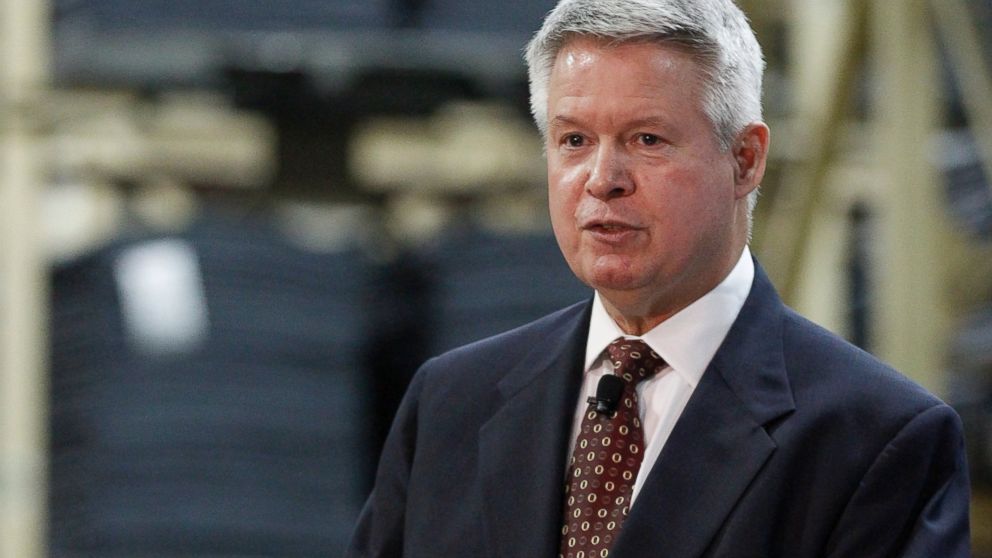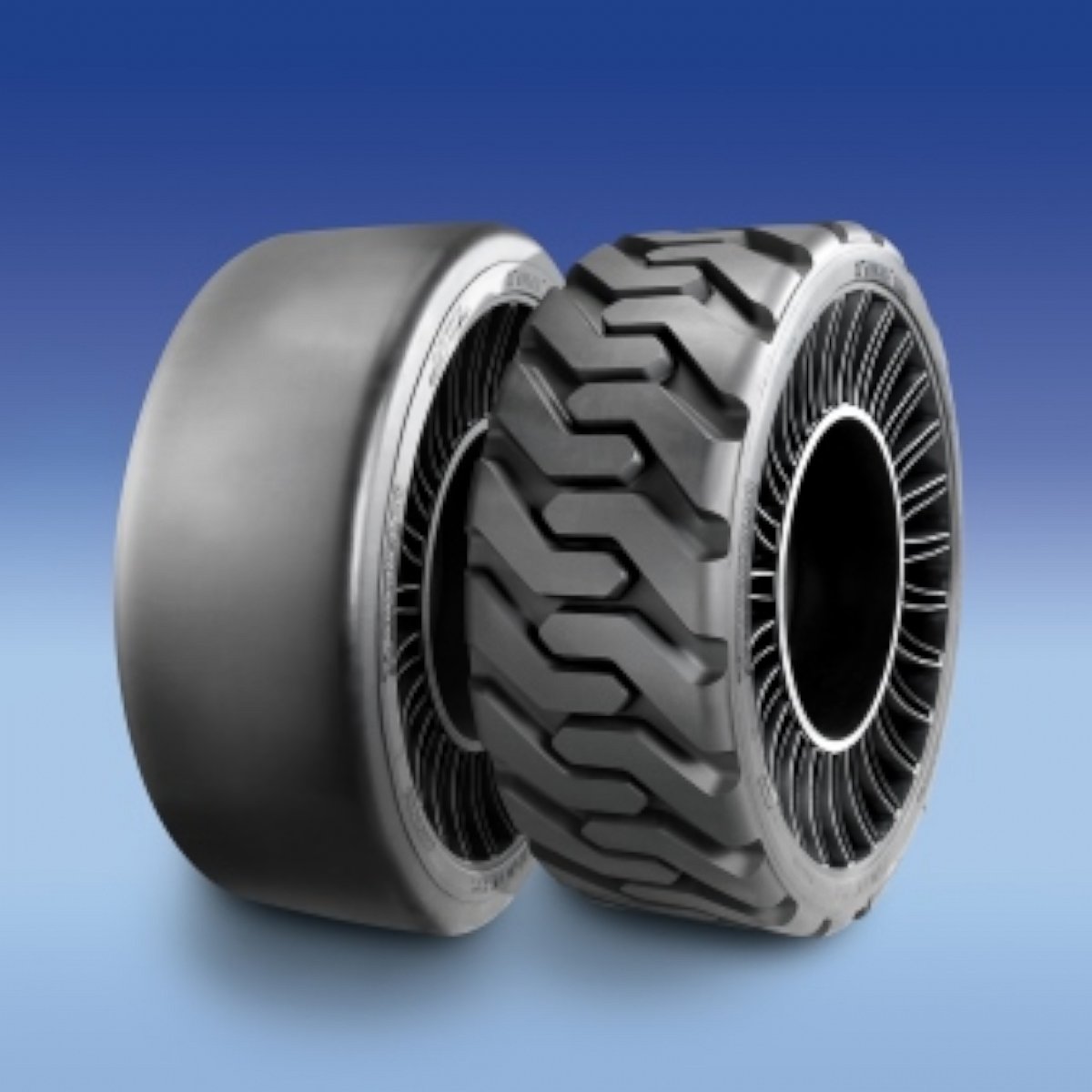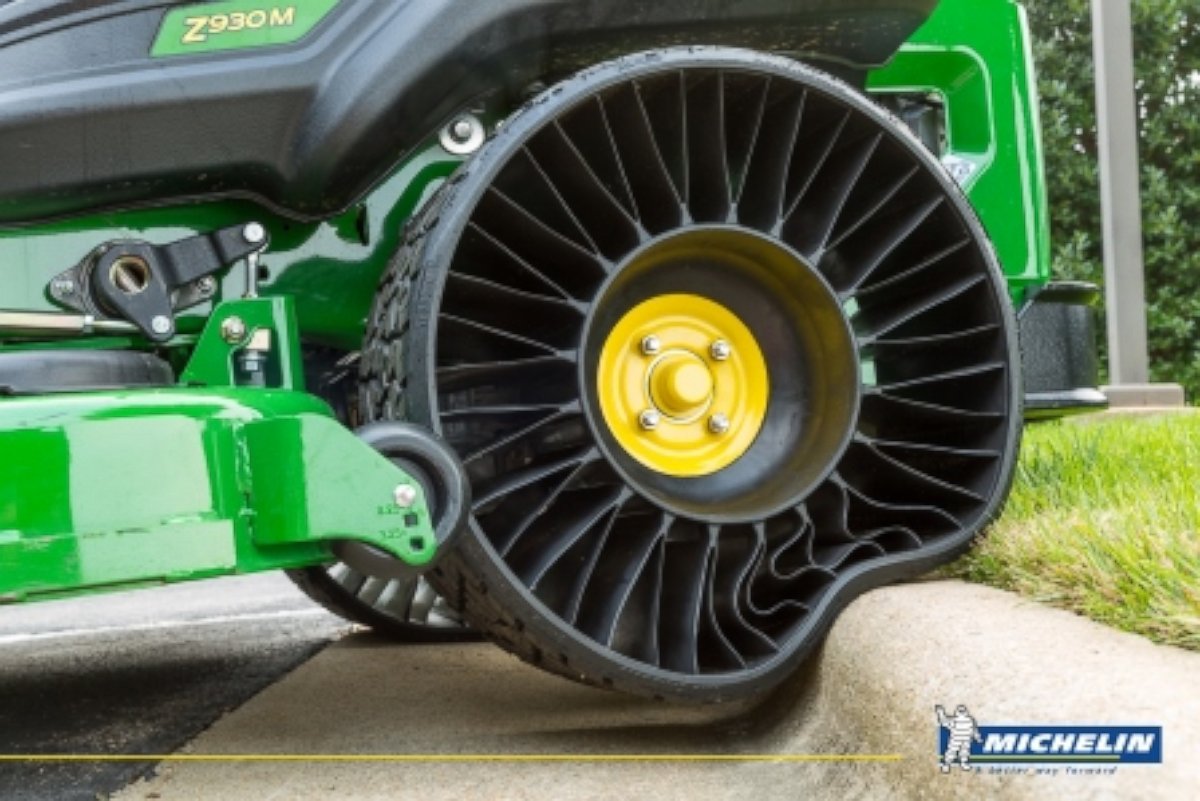The C-Suite Insider: Michelin Reinvents the Wheel With Airless Tire
Peter Selleck of Michelin North America says the product revolutionizes tires.

— -- Drivers' hearts may not go aflutter over innovation in the tire industry as much as they get excited by a new tech gadget, but Michelin North American Chairman Pete Selleck says the company is truly reinventing the wheel.
Selleck is announcing today the Tweel, the first airless tire ever to be commercially available. The company is also opening a new factory in Piedmont, South Carolina, its tenth manufacturing facility in the state and its 16th in the country.
As part of ABC News' C-Suite Insider Series, Selleck talked about being on the forefront of American manufacturing and why an airless tire is so hard to make.
Tell us about the Tweel. It's intended for industrial vehicles like John Deere's commercial mowers, but when will it be available for passenger cars?
"People see the Tweel and they immediately ask the question, 'When am I going to get it on my car?' The story is really about innovation," Selleck said.

"Down the road, who knows maybe the Tweel will replace the pneumatic tire. We are going to innovate on the Tweel, and we will let the future happen. If the Tweel does in fact come to passenger cars, I can assure you Michelin will be the first."
Technical issues are a factor in making the tires, and so is cost. "Our customers have such a huge problem with flat tires, they don’t really care with the cost. The downtime to deal with flat tires is so great – finding a solution is almost priceless. The commercial lawnmower John Deere that will be offering Tweel is about $750 more."
Is it a threat to Michelin's market for passenger car tires?
Michelin invented the Tweel back in 2005, and other companies have since developed prototypes, but Michelin is the first to commercialize the concept.
"Some might see the Tweel as a threat to us, but we are very focused on the opportunity," he said. "Our customers don’t really buy tires. What they really want to do is maintain the mobility of their vehicles."
Flat tires are the biggest concerns for industrial skid-steer and mower owners.
While gadget makers would be thrilled if you burn through their products every year, one of Michelin's goals is to make longer-lasting tires, he said.
How does American manufacturing compare to the industry abroad?
Before he was appointed as head of Michelin North America in 2011, the 32-year Michelin veteran previously worked in France. Overseeing the brand's global truck business, Selleck said he's had a close-up view to compare manufacturing in China, India, Brazil, Central Europe and South America, among other regions.

"What most people don’t realize is that the manufacturing output in the U.S. is at the highest level ever in history," he said. "We are producing a higher number of products for our citizens. Most people don’t realize that because the number of people working in manufacturing has decreased."
The majority of what Michelin sells in North America is made in North America for several reasons, he said. First, the logistic costs of moving products can be prohibitive, but also, the tires themselves change per region.
"Driving conditions are different, so tires are different," he said.
Manufacturing in high labor-cost countries like the U.S. and Canada "has to be very good," he said.
"You have to be excellent at safety, quality, with good flexibility and cost management. But American workers and Canadian workers are continuously demonstrating their ability to do that, and they are continuing to improve," he said.
With all your business travel, what's your secret to a sane schedule?
For the last 10 years, Selleck limits the number of hours he works in a week, with the help of his executive assistant.



